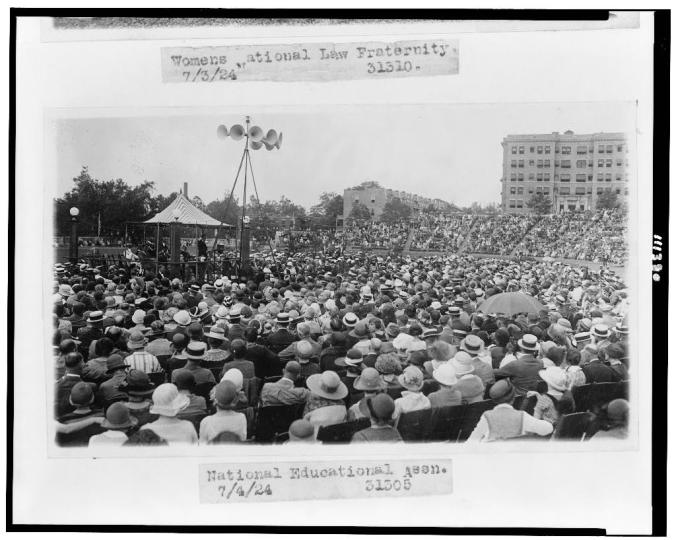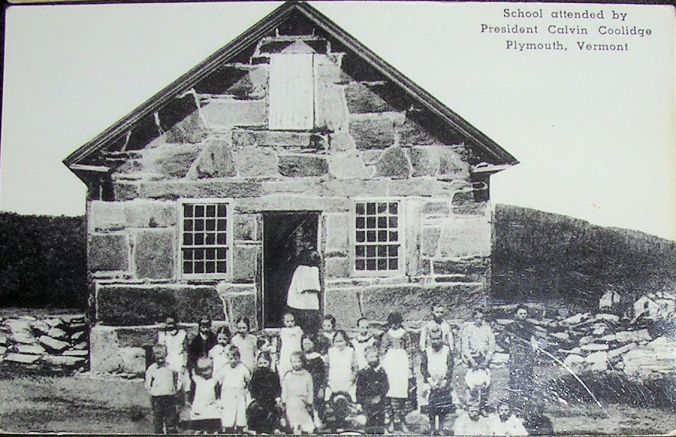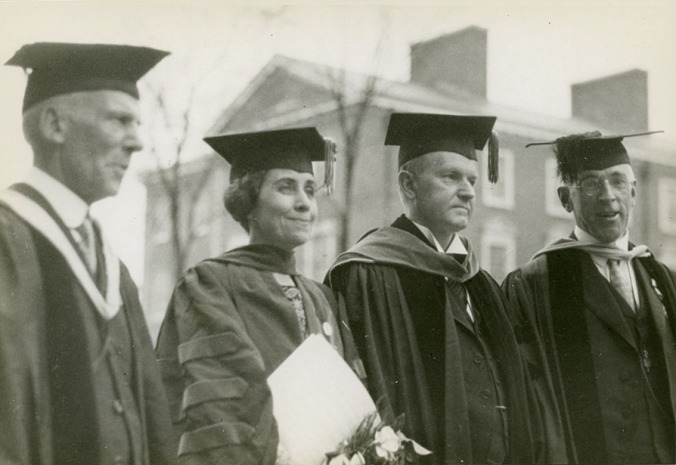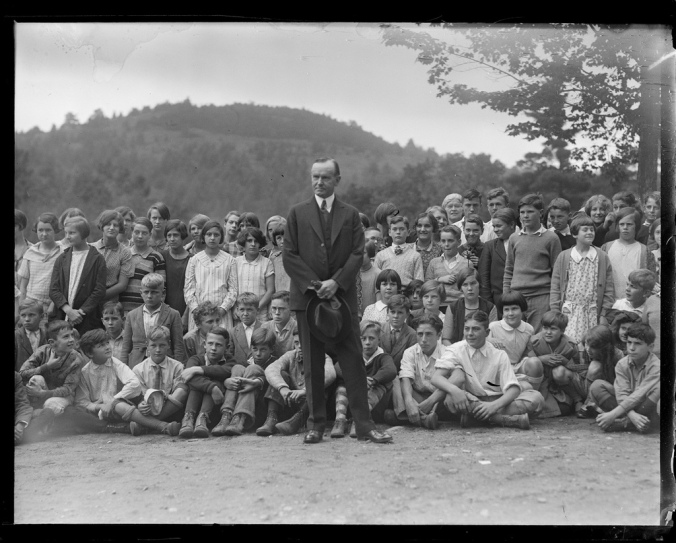
Coolidge, now the President, addresses the National Educational Association less than four years after the speech given below.
The state has undertaken to provide public education and in that great task it is being more and more successful. It is a task of idealism, of course, one in which the work performed must, as in all great enterprises, to a very large extent merit the compensation that is received by those who perform it.
Yet there ought to be a deep and abiding appreciation on the part of the public toward our teachers, toward our superintendents, and toward all those who are engaged in the instruction of the young. One of the ways in which that can not only be secured but met is by showing that appreciation by making an investment in it. I think we read that, where the treasury is, there the heart is. And that is a principle that has come down to us through the ages. And it’s true. If you want an interest in any project, get someone to make an investment in it and then their interest always follows their investment…

I am not yet an old man. I went to school in a little country schoolhouse and I think I have said before that I suppose no teacher that I had up to the time that I went to an academy could secure employment anywhere now in Massachusetts. Educational facilities are increasing. In that little schoolhouse, ungraded, they taught the elements of reading, writing, and arithmetic. They didn’t think of going into any of the things that modern education goes into. There wasn’t the need for it. There wasn’t the requirement that made it necessary.
But we are undertaking to look at education in a broad way, in an inclusive way, not only for the purpose of instructing the intelligence, the brain in the elements of education, but we are also doing a great deal toward the instruction of the hand, because we realize here in New England that there is the elementary education that is necessary for us and that there is the vocational education that is necessary for us because the public is undertaking only the idealistic side but is doing what it can along the practical side in order that those who leave our public schools may have the skill with which to take up the various vocations that we follow here in New England and carry them to a successful conclusion.
It is a broad and all-inclusive plan on which you are working of laying the foundation of the individual in order that he may come into the realization of a higher life in the industry in which he is engaged, in the ideals that he follows, and in everything that touches and makes up our modern efficiency.

The Coolidges receive honorary degrees during the sesquicentennial of Phillips Academy, 1928. The couple is flanked by Alfred Ripley (left) and principal Al Stearns (right). Photo credit: Leslie Jones Collection.
I said it was important – I doubt very much if there is anything of equal importance or any importance at all besides the work that you are carrying on. It is a satisfaction to me to know that that is being more and more recognized every day, that people, the public are not satisfied merely to build the schoolhouse, furnish it out with all the equipment with which our modern schoolhouses are furnished, but they see the necessity of putting into the schoolhouse men and women equipped in every way to be an inspiration to the children over whom they have jurisdiction.
There isn’t any way of teaching unless a teacher can inspire the respect, confidence, perhaps the affection of those with whom they come in contact and that can’t be done – I come back to that time and time again, without making a sufficient outlay of money. So I believe that you who are engaged in education are entitled to look with a great deal of satisfaction on the accomplishments of the last two years. There has been a raising of the standards of life, I think, in every direction.
It will be for you to meet that great requirement, to live up to it to see it and to direct and to point it into channels that will look for the public welfare. The increase of civilization and the bringing of the men and women of the future into the possibility of living useful, beneficial, yes, holy lives in the communities where they reside.
— Calvin Coolidge, excerpt of an address given to the Educational Conference, State House in Boston, November 13, 1920
For Coolidge, the question for education comes down to what are we building? It is not the schoolhouse, home room or facility alone. Who are we building on the inside?
